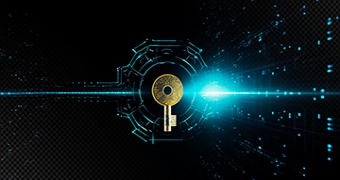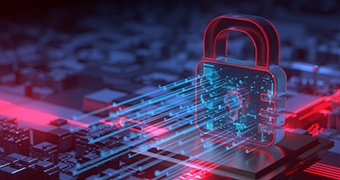We are living in a world where artificial intelligence (AI) is transforming eve....
What is the difference between ISO/IEC 27001 and ISO/IEC 27002?

In the realm of information security, ISO/IEC standards play a crucial role in guiding organizations toward robust and effective practices. Two of the most widely recognized standards are ISO/IEC 27001 and ISO/IEC 27002. While they are closely related, they serve distinct purposes and provide different types of guidance. Understanding their differences is essential for implementing a comprehensive information security management system (ISMS).
What is ISO/IEC 27001?
ISO/IEC 27001 is an international standard that outlines the requirements for establishing, implementing, maintaining, and continually improving an information security management system (ISMS). It provides a systematic approach to managing sensitive information to ensure its confidentiality, integrity, and availability. ISO/IEC 27001 is designed to help organizations protect their information assets, manage risks, and ensure compliance with legal and regulatory requirements.
Mastering ISO/IEC 27001: A 10-Step Guide to Seamless Implementation
What is ISO/IEC 27002?
ISO/IEC 27002 is a supplementary standard that provides guidelines and best practices for information security controls., ISO/IEC 27002 offers a detailed catalog of security controls and practices that organizations can implement to manage specific security threats and vulnerabilities. It serves as a practical guide for selecting and applying appropriate controls to safeguard information.
Key differences between ISO/IEC 27001 and ISO/IEC 27002
-
Purpose:
-
ISO/IEC 27001: Focuses on the requirements for establishing, implementing, and maintaining an ISMS.
-
ISO/IEC 27002: Provides a detailed set of controls and guidance for securing information.
-
-
Certification:
-
ISO/IEC 27001: Organizations can achieve certification, demonstrating compliance with the standard.
-
ISO/IEC 27002: Does not provide certification; it is used as a reference for implementing controls.
-
-
Scope:
-
ISO/IEC 27001: Addresses the overall management of information security.
-
ISO/IEC 27002: Focuses on specific security controls and practices.
-
-
Content Structure
-
ISO/IEC 27001: Structured around the requirements of an ISMS, including risk assessment, risk treatment, and continual improvement.
-
ISO/IEC 27002: Structured around the controls listed in ISO/IEC 27001's Annex A, providing additional details and implementation guidance for each control.
-
-
Applicability
-
ISO/IEC 27001: Applicable to any organization, regardless of size, type, or sector, that wants to establish, implement, maintain, and improve an ISMS.
-
ISO/IEC 27002: Best suited for organizations looking for detailed guidance on implementing the controls identified in their risk assessment.

Benefits of implementing ISO/IEC 27001 and ISO/IEC 27002
Adopting ISO/IEC 27001 and ISO/IEC 27002 offers numerous benefits, including:
- Improved Security Posture: Organizations can better protect sensitive data from breaches and cyber threats.
- Regulatory Compliance: Adhering to these standards helps organizations meet legal and regulatory requirements related to information security.
- Enhanced Reputation: Certification can improve an organization’s reputation and build trust with clients and partners.
- Risk Management: A structured approach to identifying and mitigating risks ensures that organizations are prepared for potential threats.
How the Two Standards Work Together
ISO/IEC 27001 and ISO/IEC 27002 are designed to work in tandem. ISO/IEC 27001 provides the framework and requirements for establishing an ISMS, while ISO/IEC 27002 provides the detailed guidance for implementing the controls necessary to manage security risks effectively.
For instance, an organization seeking ISO/IEC 27001 certification would need to conduct a risk assessment to identify potential security risks and determine which controls from Annex A should be implemented to mitigate those risks. ISO/IEC 27002 would then serve as a practical guide, offering best practices on how to implement each selected control.
How can PECB Help?
Recognizing the critical importance of information security, PECB offers comprehensive training courses designed to equip individuals with the competencies needed to plan, develop, implement, maintain, and improve an Information Security Management System (ISMS) within organizations.
Our ISO/IEC 27001 and ISO/IEC 27002 training courses are available at various levels:
- ISO/IEC 27001 Foundation
- ISO/IEC 27001 Lead Implementer
- ISO/IEC 27001 Lead Auditor
- ISO/IEC 27002 Foundation
- ISO/IEC 27002 Manager
- ISO/IEC 27002 Lead Manager
Conclusion
ISO/IEC 27001 and ISO/IEC 27002 are complementary standards in the field of information security. ISO/IEC 27001 sets the framework for an ISMS, including requirements for risk management and continual improvement. ISO/IEC 27002 provides practical guidance on the implementation of information security controls, supporting organizations in their efforts to protect sensitive information. Understanding the distinction between these standards allows organizations to effectively implement and manage their information security practices, ensuring a robust defense against security threats.
About the AuthorTeuta Hyseni is the Senior Web Content Specialist at PECB. She is responsible for updating and managing website content. If you have any questions, please do not hesitate to contact her at: support@pecb.com. -


